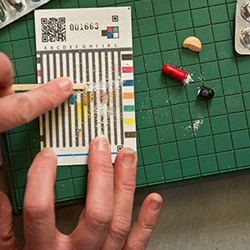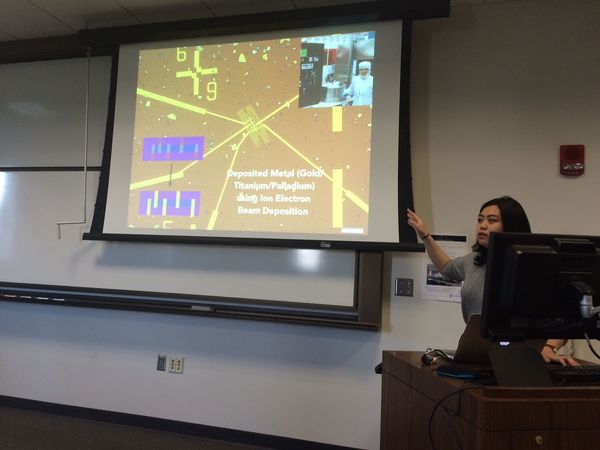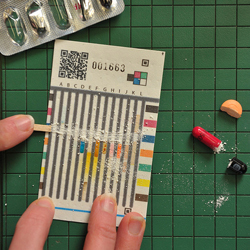

The first presentation, "Engineering and Understanding the Phase Transitions in Layered Materials" showcased Magno’s research on semiconductor layered material. Magno’s work focused on treating tungsten diselenide with lithium to determine if it would change from the semiconductor phase to the metal phase. so that when they place the metal on top there’s less resistance in between. This research has implications for fabricating field-effect transistors. She conducted this research with Professor Grace Xing who is now at Cornell University. Previous to this project, Magno conducted research in physics.
In the presentation "Got Fakes? Innovation for the Developing World," Prof. Lieberman discussed her interest in solving the problem of low-quality medicine in the developing world by ultimately developing analytical devices to detect fake pharmaceuticals. The technical challenge she faces is to devise analytical tools and methods that can function in resource-poor settings – settings where there are few lab instruments, supplies, or trained workers, and where the basic infrastructure for pure water, electricity, and transportation is unreliable.

To answer this challenge, Lieberman is working on developing a "lab on paper" as a platform technology for qualitative and quantitative chemical analysis. The devices are paper-based, contain all necessary reagents to perform chemical analyses, and do not need electricity. Lieberman’s team is then able to teach a computer to analyze the results from just a cell phone picture. The overall goal of this project is to crowdsource chemical analysis, revealing spatial and temporal information that will be useful for public health, forensic, and environmental applications.
Talk Science provides a fun, informal, and stimulating environment for all undergraduates to keep up with research from Notre Dame’s scientific community. All undergraduates with an interest in science, engineering, or research are invited to Scientia’s Talk Science seminars, which will resume in the fall semester.